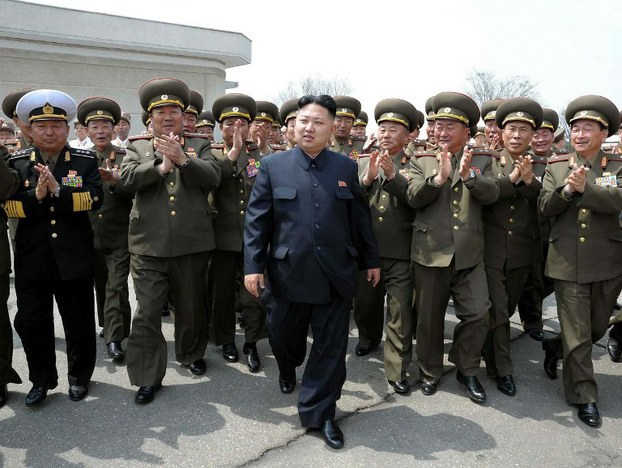




Cadets entering North Korea’s premier military schools worry not only about scoring good grades to improve promotion prospects, but also about the specter of hardship postings on graduation, such as at the tense Korean Demilitarized Zone, according to sources.
Graduates from the North’s four-year war colleges and two-year military academies prefer to be deployed as officers of units on the border with China or near the capital Pyongyang, where their duties are more relaxed and they have more opportunities to profit from corruption, a source from the capital told RFA’s Korean Service.
“Cadets and their parents think it is important for them to graduate at the head of their class and receive a higher rank, but they are more concerned with the prestige of the unit and the duty they are assigned to after they finish school,” said the source during a recent visit to China.
He said that many recent graduates bribe their way into the more preferable deployments in order to avoid units stationed near the demilitarized zone on the Korean peninsula separating the North and South, where soldiers are required to remain vigilant amid an ongoing threat of conflict.
A second source from Pyongyang told RFA that the placement of cadets from the North’s war colleges and military academies is in some part based on their scholastic performance, which can determine what rank of officer they become after graduation.
Unlike most countries, which matriculate military cadets as entry-level second lieutenants, he said that North Korea is assigning top graduates higher ranks.
The top performers at war colleges and military academies graduate with ranks as high as captains or first lieutenants respectively.
“My son is at the head of his class, and if he does his best for one more year, he could become a military officer with a high-rank-insignia,” said the source, who is the parent of a third-year cadet at a war college in Pyongyang.
“As a graduate from a war college, you can be company [80-150 soldiers] commander if you are commissioned as a first lieutenant, but you are only a platoon [15-30 soldiers] leader if commissioned as a second lieutenant.”
Targeting top ranks
Competition for placement is fierce in the Korean People’s Army—one of the largest standing militaries in the world with an estimated 1.5 million personnel, according to reports.
According to the source, top honors graduates at war colleges receive ranks of captain, while honors grads are assigned to first lieutenant and all others are ranked second lieutenants. All students at war colleges begin their four-year studies as second lieutenants, he said.
At the military academies, the best in the graduating class are assigned the rank of first lieutenant, while honors students become second lieutenants after their two-year program. The source did not indicate what rank a regular graduate from the academies is granted.
He said less than five percent of students graduate with the highest academic honors in their class at the war colleges and military academies, which are each believed to matriculate between several hundred and 1,000 cadets annually.
Both institutions serve to train the nation’s top officers, but graduates from war colleges can be promoted to general, while graduates from military academies usually maintain their rank as a company grade officer before being discharged, he said.
When asked if he was aware that military schools in South Korea and many other nations graduated their cadets as second lieutenants regardless of their scholastic ability, the source said that he found the practice strange.
In South Korea, young men can choose to enter officer school instead of serving their required two-year stint in the military, while in North Korea they are required to serve three to five years in the military before they can be accepted into an officer training academy.
Reported by Joon Ho Kim for RFA’s Korean Service. Translated by Hanna Lee. Written in English by Joshua Lipes.